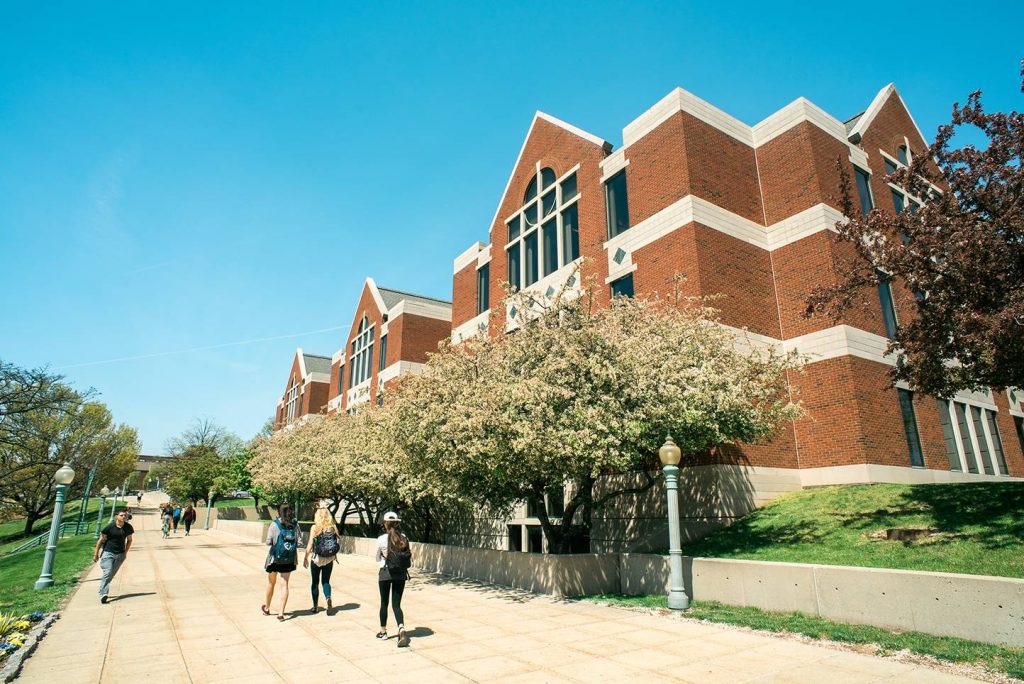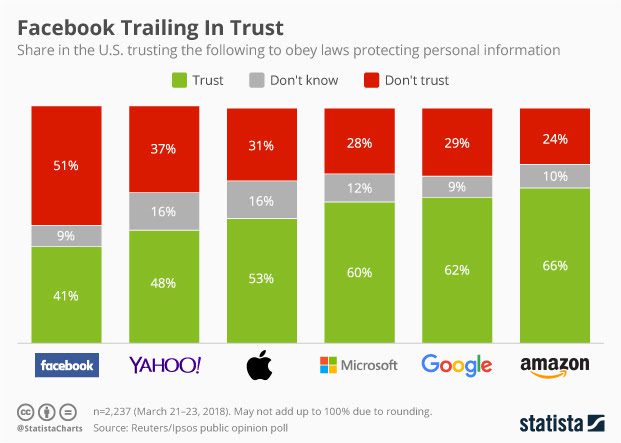Temple Fox Axes Online MBA Director After Rankings Fallout

Weeks after the Temple University Fox School of Business announced the forced resignation of its long-time Dean Moshe Porat, reformed to its approach to its ranking system, and the hiring of Interim Dean Ronald C. Anderson, the Philadelphia metro business school has announced the departure of its Online MBA Academic Director Darin Kapanjie.
Kapanjie, according to The Philly Inquirer, has been officially replaced by Fox Assistant Professor of Finance Bora Ozkan. The news was officially revealed by Anderson in a faculty-wide email, but it was not confirmed whether Kapanjie was forced to resign or not.
“Kapanjie said it was a joint decision for him to leave the leadership position. ‘Given recent events, we felt it was best,’ he said.”
Kapanjie, speaking with the Inquirer, maintained that he “did not have anything to do with the misreporting of data,” in regards to the fallout with U.S. News & World Report.
Anderson, in the email, emphasized the inclusion of Ozkan, rather than the departure of Kapanjie. He says:
“’Dr. Ozkan’s background and approach to education, as well as his experience teaching in the online M.B.A. program, make him well-suited for this role,’ Anderson wrote.”
Stay tuned for more information on the story as it continues to unfold.
Temple Fox School of Business Reveals More Rankings Details

Shortly after the forced resignation of longtime Dean Moshe Porat and hiring of his interim replacement Ronald C. Anderson, the Temple University Fox School of Business released more details following this year’s ratings fallout with U.S. News & World Report.
In a new letter from Temple University President Richard M. Englert and Executive Vice President and Provost JoAnne A. Epps revealed that the business school submitted false data regarding not only its Online MBA program—which was ranked first overall by U.S. News & World Report for four straight years—but the “Executive MBA, Global MBA, Part-Time MBA, Master of Science in Human Resource Management and Master of Science in Digital Innovation in Marketing” as well.
Englert and Epps states:
“These programs all had issues related to the reporting of one or more metrics, including the number of new entrants providing GRE/GMAT scores, student indebtedness and applicants’ undergraduate GPAs. For the Online Bachelor of Business Administration, misreporting related to student indebtedness was found. As a result, we have reported to U.S. News that we cannot verify data related to these programs, and we are not participating in or submitting business school surveys at this time.
We want all the members of the university community to know that, with respect to the misreporting of information at the Fox School, you had a right to expect this information would be accurate and honest. We deeply regret that this did not happen. We will do more than own this problem. We will fix it. And none of this takes away from the quality education that our Fox School students receive, or from the excellent teaching and research of its faculty.”
As a whole, the letter is a concerted effort at more transparency from the university, given the sensitive nature of the situation since being removed from U.S. News is January of this year.
The two go on to say:
“Integrity in the way we conduct and represent ourselves to the world is a fundamental value at Temple. The university is committed to the highest standards of accuracy in its data submissions to rankings organizations and has implemented rigorous new university-wide procedures to ensure this. As we said earlier this month, Temple is in contact with a number of agencies that have an interest in this matter. We are updating them as new information develops. We continue to diligently pursue the review of rankings data and will share additional updates.
We would also like to take this opportunity to thank the university staff who have been working so diligently in carefully reviewing thousands upon thousands of data elements in the Fox School and university-wide. It is through their tireless efforts that we are able to ensure we report proper information going forward, and can be open and transparent with all of you.”
You can read the entire letter from Temple here. Stay tuned for more information on the story as it continues to unfold.
What Is Next for Temple’s Fox School of Business?

Just a week after the the resignation of longtime dean Moshe Porat, the Temple University Fox School of Business still has a lot of questions to answer.
Temple Fox is not the first school to lose its status due to artificially boosting its own rankings. In 2011, Villanova’s law school came under fire for giving false GPA and LSAT data to U.S. News & World Report and the American Bar Association. Just one year later, both Tulane University and George Washington University were docked by U.S. News for submitting false data for a positive placement on its annual rankings lists. The following year, in 2013, Bucknell University was caught providing incorrect SAT data. So while the history of Temple’s relatively new public relations bruising is not unprecedented, the question now remains of what the future may hold for the Philadelphia business school.
In a recent Philly.com article, writers Susan Snyder and Erin Arvedlund ask just how much did the outward effort for high rankings hurt Temple? In the piece, MetroMBA and Clear Admit co-founder and CEO Eliot Ingram says, “At the end of the day, the value proposition of the Fox MBA program rests on its education, brand, and network.”
“Having read the Jones Day report, I am stunned that the dean would risk jeopardizing the brand and reputation of the entire Fox/Temple community by overseeing a multi-year effort to submit incorrect data to U.S. News in order to get a high U.S. News ranking for the Fox online MBA program. As Benjamin Franklin once said, ‘It takes many good deeds to build a good reputation, and only one bad deed to lose it.'”
The fallout has already produced a lawsuit from nine individual students, represented by lawyer Jason Brown. Speaking with Snyder and Arvedlund, Brown says, “Had they [Temple] done the slightest due diligence of how they shot up to the No. 1 slot. They handsomely profited from it and didn’t care about how they obtained the wings to fly so high.”

After its dismissal of Moshe Porat, the Temple Fox School of Business is still without a dean during a tumultuous time.
There are some who still vocally support Porat, who was officially dismissed from the business school on July 9. Temple MD and MBA graduate Raza Bokhari has reportedly considered removing his $1.5 million donation to the school. Talking with Philly.com, Bokhari notes that the school did not inform him personally before dismissing Porat. “People like us who write big checks watch this. Our goodwill is very important.”
“He said he [Porat] is assessing the situation,” Bokhari adds. “He feels he’s been victimized. He is also reviewing his options and is very graceful. He wants Fox to do well.”
A few days after the news initially broke, Philly.com profiled Porat’s time at the business school, highlighting a bevy of co-workers who appeared to stay in Porat’s corner. “Have we sacrificed due process for expediency?” one anonymous finance professor asked, despite the rankings fallout starting six months prior.
“His supporters say Porat, 71, was pushed out too quickly for a rankings scandal discovered under his watch. They argue that the Jones Day law firm report released last week doesn’t make clear that he personally ordered numbers to be manipulated. More than 100 faculty and staff turned out at a somber meeting last week with Temple president Richard Englert and provost JoAnne Epps to voice their defense and criticism of Porat.”
Adding even more pressure to the situation, the business school will be seeking re-accreditation this winter; nearly a year before it was originally scheduled to do so.
Regardless of the internal strafing among the faculty and staff, Temple’s principle concern moving forward its finding an adequate replacement and rightfully adjusting how it handles its internal data for future rankings. The latter of which will likely continue to be of massive importance for the school, according to Samuel Hodge Jr., who teaches law at Fox.
“I believe if you talk to any dean at a top 100 business or law school, rankings are of critical importance to him or her,” he says. “Faculty must be held accountable, and requiring excellence in the classroom and research makes us better academicians. Rankings also provide a measuring stick to gauge improvement and to maintain consistency and accountability.”

Former Fox School of Business dean Moshe Porat / April Saul/The Philadelphia Inquirer via AP (’09)
Recovering from the scandal may seem daunting, but most of the schools caught in similar fashion, such as the Villanova University School of Law in 2011, usually end up recovering in the rankings in the long-term. Philly.com notes that the school fell 20 spots on the U.S. News law school rankings after the incident (falling from 67 to 87), but now sits 65th overall. The Fox School of Business Online MBA, however, was ranked 1st overall for four years in a row by U.S. News, so when the school eventually returns to the annual ranking next year, the falloff may be a bit more severe.
Stay tuned with MetroMBA as this story continues to unfold.
Coffee Brains, Case Writing, and More – New York News

Let’s explore some of the most interesting stories that have emerged from New York business schools this week.
This Is Your Brain On Coffee: Beyond Health Benefits, Even the Smell May Fuel Higher Test Scores – Stevens Institute of Technology College of Business Blog
New research published in the Journal of Environmental Psychology finally confirmed your suspicion: yes, your coffee is making you smarter. Well, maybe. Science is tricky and all that.
In the research, officially released earlier this year, Stevens School of Business professor Adriana Madzharov and colleagues from Temple and Baruch found that the scent of coffee helped people perform tasks better and even improved test scores. Interestingly enough, the researchers concluded that the effect of even just smelling coffee could be as beneficial as consuming it.
“It’s not just that the coffee-like scent helped people in our study perform better on analytical tasks, which was already interesting,” Madzharov writes. “But they also thought they would do better, and we demonstrated that this expectation was at least partly responsible for their improved performance. In short, smelling a coffee-like scent, which has no caffeine in it, still has a placebo effect similar to drinking coffee.”

New research reveals that the scent of coffee can help you with daily tasks and tests, even if you do not consume it.
She adds, “This finding also has useful multiple practical implications in business for workplace professionals, architects, building developers, retail space managers and others.”
You can read the full article here.
A Rutgers Team Brings a Professor’s Lesson to Life – Rutgers Business School Blog
Rutgers Business School Professor of Marketing Can (John) Uslay recently took home first place in a recent case-writing competition put together by the University of Michigan’s William Davidson Institute.
Professor Uslay’s entry was based on Roshni Rides, a “rickshaw transportation company created and piloted by a team of Rutgers Business School students,” which won the “$1 million Hult Prize for social entrepreneurship in 2017 after a compelling presentation about how their company could help improve the lives of refugees living in the Orangi Town settlement.
Professor Uslay outlined “the challenges the team faced, specifically their effort to find a price point that would keep the cost of the service affordable and still enable the company to grow.”
You can check out the full interview with Professor Uslay here.
The Business Case for Sustainable Tourism Management of Protected Areas – SC Johnson Business Feed
Tom Olson, a recent Johnson Cornell MBA graduate, recently published an op-ed about the growing need for “developed, emerging, and frontier markets” to develop more sustainable management structures to accommodate increased tourism.
Enter the Tourism and Protected Area Specialist (TAPAS) Group; a subgroup of the International Union for the Conservation of Nature (IUCN) “dedicated to advancing sustainable tourism initiatives in protected areas.”
Olson writes that he was tasked by TAPAS Group to “analyze, develop, and recommend a revenue generation model that would be financially sustainable, align with IUCN’s values, and be accepted by the broader community of sustainable tourism professionals.”
You can read Olson’s full op-ed here.
Philly’s Fastest MBA Programs

You’re education is important—but so is your time. And for those looking to earn an MBA to accelerate their job growth or fast track their careers, the faster you can earn that degree the faster you can get back to earning money and making an impact in your field.
Most business schools offer a variety of MBA programs for students to choose from, allowing everyone from recent graduates to experienced executives the flexibility to choose a program that best fits into their life and schedule. For driven students who just can’t wait to reap the benefits of their MBA, many schools offer accelerated or One Year MBA programs that shortens the traditional length of time it would take to earn an MBA. While the curriculum can be rigorous, the programs give students the chance to quickly earn their degree, both minimizing the amount of money spent on classes and the income lost from not working full time.
In Philadelphia, there are a number of programs that allow you to go from applicant to degree holder in as little as twelve months. And since a 2017 study ranked Philadelphia as one of the five most-improved economic cities in the U.S., you won’t want to miss your chance to reap the benefits of this economic boom with your degree in hand.
The Fastest Philadelphia MBA Programs
Fox School of Business – Temple University
The Temple University Fox School of Business Executive MBA is one of Philadelphia’s quickest and most flexible MBA degrees. The program takes place over the course of 16 months, with classes delivered on one three-day weekend per month. The program is designed for experienced professionals who want to pursue their degree without giving up their career, and is constructed to accommodate a full-time work schedule.
For those looking for a quick MBA without the ten or more years of work experience an EMBA requires, Temple Fox’s Online MBA can be earned in just 20 months. Outside of one week-long residency at the start of the program, the digital aspect of this degree gives students not just time flexibility but also location. After the residency, this program can be pursued from pretty much anywhere!
LaSalle University School of Business
The School of Business at LaSalle University offers a One-Year MBA program for students with undergraduate experience in business. Knowing that important business pre-requisites for the degree are already out of the way, students can jump right in and earn their MBA in as little as 12 months.
The AACSB accredited One-Year program is an intensive degree program that requires students to take a full course load for the fall and spring semester as well as working through a winter intersession and summer semester. Students in this program also have the opportunity to specialize their degrees in the fields of accounting or finance, and will help prepare graduates to take the CPA and CFA exams by the end of the year. Students will also be paired with an academic adviser throughout the year who will help plan for their future careers. And the success of past graduates of the One-Year MBA program seems pretty clear, joining major companies like Deloitte LP, KPMG, PwC, and JP Morgan Chase, among others.

The La Salle One-Year MBA is among the fastest MBAs you can earn in any major East Coast city.
Haub School of Business – Saint Joseph’s University
The MBA at Saint Joseph University’s Haub School of Business can be completed in as little as one year for students who meet certain undergraduate requirements. Students can pursue this degree in a variety of ways, whether on campus or online, and whether full or part-time. Regardless of format, the MBA at Haub gives students the option to choose major for their degree, among high-demand disciplines like marketing, data intelligence, finance, international business and more.
The overall data which shows that those with an MBA earn more and have more career opportunities most certainly rings true for graduates of Haub’s MBA program. Nearly 76 percent of graduates said their SJU MBA helped their career advance, and 73 percent reported a salary increase as a result of their graduation. With the chance to limit the time of an SJU MBA to just 12 months, students can work their way to these benefits even faster.
Lehigh University College of Business and Economics
The 1-MBA at the Lehigh University College of Business and Economics is a full-time, one year MBA program designed for professionals looking to either accelerate their career or looking to change careers and move towards a business-related field. The rigorous program, which is located all on campus, cuts the time it takes to pursue a traditional Lehigh MBA in half.
Unique benefits of the 1-MBA at Lehigh include a team of mentors and coaches assigned to students even before they arrive on campus, including a faculty adviser, industry mentor and career coach who will help guide students through their year-long program. The program is also centered around a consulting practicum, which both trains students in practical skills for consulting and provides hands-on experience in the field. The 1-MBA program also focuses intensely on the professional development of every student in the program, offering personalized coaching and global immersion study opportunities that can help shape and prepare students for future business success.
What They’re Saying: The Facebook Fallout

It seems puzzling to say a company that is worth nearly half a trillion dollars is venturing somewhere near zero degrees Kelvin, but if you were only reading headlines this week you’d get the sense that Facebook isn’t looking so hot.
Since the break of the Cambridge Analytica scandal, the tech giant lost an estimated $100 billion USD in value, and its beleaguered founder Mark Zuckerberg lost an estimated $14 billion of his own worth. Fortunately for him, according to CNN, he’s still worth over $60 billion so he can easily afford more mayonnaise and butter sandwiches.
But the fallout is more than monetary. Trust in the social media company is at a critical low point, according to Statista data.

Janina Conboye at the Financial Times recently asked how the company may go about repairing its own image in “The MBA view: can Facebook fix its reputation?,” speaking with numerous business school faculty members, including London Business School‘s Jill Schlechtweg, who plainly says, “It is worth wondering whether Facebook can regain credibility at all. Arguably Mark Zuckerberg has evaded responsibility for the social costs of social media addiction, the proliferation of fake news, and now leaks of personal data for political ends.”
Check out how other business schools and industry experts are reacting the ongoing Facebook story below.
What @facebook knows about you apparently includes data about phone calls and messages. The revelation could make Facebook’s huge data scandal hurt more than ever. https://t.co/jActrbEB5i
— MIT Tech Review (@techreview) March 27, 2018
PSA: “Harvard Business School Prof. Shoshana Zuboff calls it “surveillance capitalism.” And as creepy as Facebook is turning out to be, the entire industry is far creepier. It has existed in secret far too long…” https://t.co/vSPlAyWnzu
— Mitchell Schneider (@Mitski) March 27, 2018
What Cambridge Analytica is accused of doing, Facebook and Silicon Valley giants like Google do every day, indeed, every minute we’re logged on. – https://t.co/8O9730vddo
— Mark Schaefer (@markwschaefer) March 29, 2018
In the wake of the Cambridge Analytica scandal, Apple is making their position clear on privacy. https://t.co/OLIl5ihtby
— FOX MBA & MS (@FoxMBA) March 28, 2018
.@profgalloway weighs in on #Facebook‘s handling of the Cambridge Analytica scandal via @barronsonline https://t.co/6zWqfAa3nk
— NYU Stern (@NYUStern) March 28, 2018
